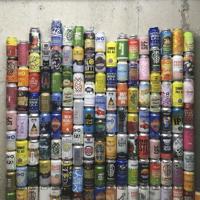How much alcohol do you typically consume in a week, a month, or a year? Have you considered your alcohol intake during specific occasions like New Year’s Eve, Christmas, the Super Bowl, or the World Cup?
Studies have shown that alcohol consumption tends to be underestimated, with discrepancies ranging from 30% in the U.S. to 80% in Australia. Special events such as holidays, weddings, or major sports gatherings contribute significantly to this underestimation. On average, individuals tend to consume an additional four drinks per week for men and three drinks per week for women during such events, often excluding these occasions from their regular alcohol intake calculations.
Research focusing on alcohol use and its impact on parenting reveals that understanding the effects of special-occasion drinking on parental behavior is crucial, especially during festive periods when alcohol consumption is prevalent. By recognizing how parents’ alcohol consumption influences their interactions with their children during these events, strategies can be developed to promote positive parenting practices.
Alcohol consumption has been linked to various social issues such as violence, traffic accidents, and child maltreatment. Notably, incidents of drunk driving peak after New Year’s Eve celebrations. Moreover, men’s alcohol consumption during major sporting events has been associated with increased violence towards their families, highlighting the importance of exploring similar patterns among women due to the rise in women’s alcohol consumption in recent decades.
Drinking while parenting can lead to decreased supervision of children or harsher disciplinary actions. A study conducted on parents’ alcohol use during special occasions like Super Bowl Sunday and Valentine’s Day revealed intriguing findings.
During the study, where 307 parents participated in daily surveys for 14 days, it was observed that a higher percentage of parents consumed alcohol on Valentine’s Day and Super Bowl Sunday compared to regular days. Drinking alcohol during the Super Bowl was linked to a higher likelihood of using aggressive discipline, while the opposite was observed on Valentine’s Day.
The study suggests that special-event drinking can impact parenting behavior differently depending on the occasion. For instance, drinking during a high-energy event like the Super Bowl may lead to mimicking aggressive behavior witnessed on screen, potentially resulting in harsher parenting practices. In contrast, Valentine’s Day, characterized by themes of romance and love, may promote a more relaxed parenting approach even with increased alcohol consumption.
To mitigate the risk of harsh parenting during special occasions involving alcohol consumption, parents can consider planning ahead by assigning a designated sober parent for supervision, opting for low-alcohol beverages, arranging childcare, or preparing alternative activities to keep children engaged.
Finally, it’s important to be aware of how parents’ behavior can change when they drink alcohol at special gatherings if you want to keep your kids safe and happy. By implementing proactive strategies, parents can ensure that celebrations remain enjoyable while prioritizing the well-being of their children.

